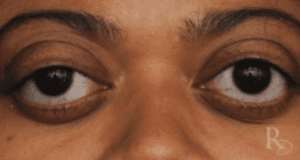
July is designated HEALTHY VISION MONTH. Many diseases affect the eyes but we will concentrate on Cataracts and Glaucoma. (You can read about other eye diseases in my new book- Check my webpage: Barbaraentsuah.com).
Poor vision increases the risk of falls, injury, and depression especially in the elderly.
Cataracts
are the most common cause of blindness worldwide, and it is due to the clouding of the lens in the eye. It occurs with age and by the age of 60 years, 60% of people will have developed cataracts. Apart from age other risk factors include Prior injury, inflammation or infections to the eye, prior surgery for another eye problem, diseases like Diabetes Mellitus or Hypertension, chronic use of steroids, alcohol and tobacco abuse, and prior infection with Rubella in the womb (congenital cataract). Finally, excessive exposure to the sun’s ultraviolet (UV) light, being female, or having a family history of cataracts all contribute to its formation.
Symptoms of Cataract
These include Fuzzy or clouded vision, sensitivity of light or glare, the central part of eye appears cloudy, poor night vision, halos (circle of light) around objects, and blindness.
PREVENTION
- See an eye doctor (ophthalmologist) or optometrist to have an eye exam every one to two years ( one is better) especially after the age of 40 years. However, any sign of eye problems warrant an eye exam immediately.
- Wear sunglasses that block 99 to 100 % of UVA and UVB radiation. 🕶🕶
- Wear broad brim hats to reduce UV light from the sun
- General measures for Healthy Eyes as discussed below.
TREATMENT 👀
Initially may include use of stronger corrective glasses/spectacles, brighter lighting, anti-glare sunglasses, or use of magnifying lenses. Severe cases have to be treated by surgery to remove the lens, followed by implantation of an artificial lens or use of prescription glasses with high powered lens.
GLAUCOMA
Glaucoma is a result of increased pressure in the eye leading to damage of the Optic Nerve. It is the second most common cause of blindness worldwide. The fluids present in the eyes help with different functions and maintaining the structure of the eye ball, within a specific pressure range. Several reasons including blockage of the fluid channels can lead to increased pressure referred to as increased Intra ocular Pressure (IOP). In other cases the fluid channels are not blocked but pressure still increases. Vision may start decreasing gradually or suddenly and the measured pressure will be increased, with symptoms occurring when IOP is above 35. If diagnosed with glaucoma, treatment is either by special eye drops, oral medications or surgery to lower the pressure and prevent further damage to the Optic nerve.
Prevention
This is by regular eye examinations about every one to two years after the age of 40 years or earlier if one has a family history of Glaucoma or symptoms.
Measures to Maintain Healthy Eyes
These may include the following:
- Get an eye exam every one to two years or as directed by healthcare provider
- Use photochromic or transitional light adaptive lenses for eye protection if you wear prescription glasses
- Wear sun glasses when outside to block both UVA and UVB rays
- Shades or sunglasses are not just for fashion they are for PROTECTION 😎😎😎
- When using equipment at home or work, wear eye protection to prevent injury by particles etc.🥸🥸
- Eat dark leafy green vegetables (spinach, kale etc.) and fish high in omega 3. These include salmon, tuna, mackerel and herring.
- With increased use of devices it is easy to have eye strain. Practice the 20-20-20 rule. This means every 20 minutes; you take a rest from your cell phone or computer and focus 20 feet right ahead of you for 20 seconds, then return to your screen.
- Make sure if you have medical conditions like Diabetes Mellitus, Hypertension or Stroke that they are well controlled by medications healthy diet and exercise.🚶🏿♀️🚶🏾
Each of these can affect the eyes.
- If you have family history of glaucoma and macular degeneration make sure you get yearly eye exam.
- Eye supplements may be needed if your diet is deficient in some vitamins; only studies related to Macular Degeneration show supplements slow its progression.
I hope this will help you maintain healthy eyes which are your window to the visual world 🤩🤩🤩👀👀👀
Thank You
Share with family and friends
Dr. Barbara Entsuah. MD (Family Medicine Physician, Author and Philanthropist).
#Loveyoubody# ❤️❤️❤️




 We’ll no longer tolerate your empty, unwarranted attacks – TUC blasts Prof Adei
We’ll no longer tolerate your empty, unwarranted attacks – TUC blasts Prof Adei
 Bawumia donates GHc200,000 to support Madina fire victims
Bawumia donates GHc200,000 to support Madina fire victims
 IMF to disburse US$360million third tranche to Ghana without creditors MoU
IMF to disburse US$360million third tranche to Ghana without creditors MoU
 Truck owner share insights into train collision incident
Truck owner share insights into train collision incident
 Paramount chief of Bassare Traditional Area passes on
Paramount chief of Bassare Traditional Area passes on
 Two teachers in court over alleged illegal possession of BECE papers
Two teachers in court over alleged illegal possession of BECE papers
 Sunyani: Victim allegedly shot by traditional warriors appeals for justice
Sunyani: Victim allegedly shot by traditional warriors appeals for justice
 Mahama vows to scrap teacher licensure exams, review Free SHS policy
Mahama vows to scrap teacher licensure exams, review Free SHS policy
 Government will replace burnt Madina shops with a new three-story, 120-store fac...
Government will replace burnt Madina shops with a new three-story, 120-store fac...
